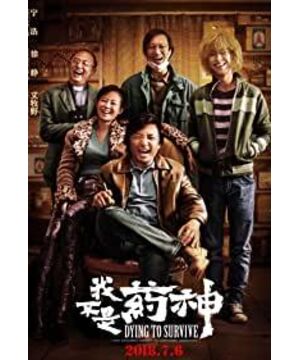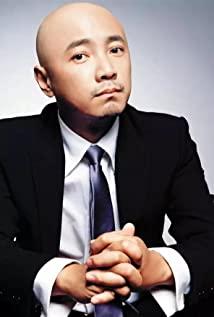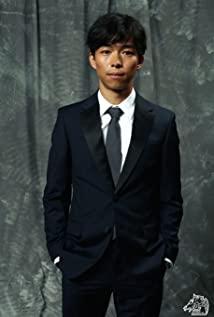Although many movies have used the slogan "zero negative review" in the marketing process, I believe that every industry worker knows that there has been no "zero negative review" work since the birth of the movie. The same is true for "The God of Medicine". Despite such an unprecedented achievement, the negative reviews still surfaced sporadically.
The negative reviews of "Yao Shen" are almost concentrated on two points (and both come from the industry and the elite). The first is the theme, which comes from the controversy over the attitude towards pirated drugs in the film; the second is the structure. The main objection is that it is too "routine".
The former mainly focuses on the elite level, with more intense views such as: "Watching pirated copies is worthy of "I am not the God of Medicine". There are also many voices on the Internet, including moral and legal aspects, but objectively speaking, this kind of discussion Similar to "Can you eat dog meat", it is difficult to have a real authoritative answer, and it is also beyond the scope of movies, so let's not mention it for the time being.
Today, I will mainly talk about the second point, which is the controversy of structure. In fact, on this issue, to a certain extent, it is not a "bad review", it is more like another point of view, mainly from people in the industry, or hardcore movie fans. Their opinions can be summed up very simply: "Routines".
To put it simply, this "routine" refers to the convention in the structure of the film, which is then extended to the emotional line of the characters. To put it more in layman's terms, "this is not a story that gives me an unexpected look."
I've seen a lot of comments use the "Hollywood model" to explain this issue, and that's right, but not on a more specific point (of course, there is also a saying that it's like Korean films, because Korean films like this are also entirely from Hollywood, so you can carry).
Why is the statement "Hollywood Model" "true"? Because the concept of genre films does come from Hollywood (a standardized aesthetic form dominated by narrative), but at the same time, Hollywood also has a large number of anti-genre films, so it is really unfair to use genre films to represent the "Hollywood model". After all, Quentin, Anti-genre gurus like Woody Allen also came out of Hollywood.
Many people in the industry use genre films to generalize when they mention Hollywood, and then extend to a simple and rough generalization of values. This generalization has a sense of overlooking, so that it has seriously affected the director education of our professional colleges in the past few years. That's not right... More to say, let's go back to "The God of Medicine".
"I'm Not the God of Medicine" is a realist theme, but it is also a genre film. The two are combined into one, "realistic genre film." There are many "realistic" films in China, and there are also many "genre films", but realism There are very few genre films.
From personal memory, almost none in recent years. We can think of several realistic (or thematic) works, such as Chen Kexin's "Dear" and Feng Xiaogang's "I'm not Pan Jinlian", but neither of these are genre films. The former is quite bold in structure, more like a Three-stage (the heroine doesn't appear until nearly an hour later); the latter is full of more distinct personal colors in both narrative and image style, and is a standard author's film.
Going forward, we look for realist genre films in China, and we will find clues from a master screenwriter. He is the screenwriter of famous works such as "Farewell My Concubine", "Alive", "Tuya's Marriage": Reed.
Mr. Reed is the first Chinese filmmaker to come into contact with and understand the classification of Hollywood genre films. For film creation, he proposes four steps: first, focus on the theme; second, focus on the genre; third, focus on the characters; fourth, focus on the plot . However, among them, what he talks about the most is genre. He believes that it is the confusion of genres that leads to frequent bad films in Chinese films. As long as you learn to determine the genre and understand the structure of genre films, at least you won’t be able to make big bad films. . So before each creation, he will repeatedly confirm two questions with the director: "Who are you going to make a movie for? What type of movie are you going to make?"
Whether it is from Mr. Reed's works or many interviews, we can see that he attaches great importance to the structure of genre films. I recommend the book "Secrets of Film Screenwriters" written by Mr. Reed. A book with the most thorough analysis, in which you can even find the reason why such a great screenwriter master's works gradually became "mediocre"... I won't go into details here, you can find it if you are interested.
There is another question, but it is also a genre film. Why don't "Farewell My Concubine" and "Alive" give people the feeling of "routine"? The answer to this question is indeed very complicated. To sum it up simply, genre films are not a fixed structure, but a guiding ideology. Just like painting, everyone knows what ink painting is, but in the style and level of each person's painting are not the same. In the hands of different authors, genre films will evolve into different styles and works of different levels. For example, Ang Lee, although you may not think so, his works are almost all of the typical genre film structure; and in Hollywood, in addition to the major directors of commercial genre films such as Spielberg, the personal favorite Hollywood director Alexander Payne Teacher, although his works are often full of literary and artistic flavors, all of his works are genre films that can be used for template analysis.
Ning Hao and Xu Zheng, the producers of "The God of Medicine", are both loyal fans of genre films, and both of them also started from this ("Crazy Stone", "Tai 囧"). According to an acquaintance, when Ning Hao met the young Ning Hao, Ning Hao always had a copy of Robert McKee's "Story" in his bag. The turning point of perspective is actually "People are on the road", the film in which he starred (in fact, he participated in most of the director's work) opened up his new understanding of commercial genre films. With the blessing of such two top genre film giants in China (really one of the best), the cornerstone of the realistic genre film of "The God of Medicine" has also been sublimated.
Therefore, as a senior movie fan, it is easy to see some "routine" plots in the movie. In addition to the large structure of succession and transformation, it is easy to find some small chapters and knots. For example, the ending of Huangmao, the transformation of the protagonist, the sublimation of the ending... All the details can be seen clearly before, but these "routines" are the secrets and essence of genre films. Only these routines can be more extensive and wider. Let a movie and a story be accepted and spread by the public.
Another criticized problem in the film mentioned at the beginning of the article can also be explained by the structure of the genre film. Genre films must have a story driving force to promote the trajectory of the characters. This motivation comes from two aspects, one is the internal motivation of the characters, and Hollywood superhero blockbusters are often dominated by internal motivation (the so-called contradiction between responsibility and ability); the other is external motivation, that is, events push the characters. The audience sees the characters teetering on the tightrope of fate to develop a strong empathy for the characters.
Throughout the ages, from governing a country to writing an online novel, what could be more emotionally cohesive than creating a common enemy? So from the perspective of genre film structure, but also from the practical significance of this film, I fully understand the creator's choice.
It should be said that "The God of Medicine" chose such a "routine", which made it lose its exploration at the level of film art and the opportunity to become a "magic work".
But I personally think that the current choice is 200% correct. To choose a movie with this theme, the first problem to be solved is to let the audience see it, and then to let more people see it and let more people see it. See, it has more meaning. This kind of significance is not only a shot in the arm for the Chinese film market, which is large and empty in recent years, and even chaotic from time to time, but also adds dignity to the filmmakers. You see, we are also using our own practical actions to change China. When scolding our circle, at least you think about it.
"Routine" is the only way for realist genre films to achieve this goal, as Korean and Indian films with the same "routine" have proved this, and Taiwanese films have also proved this from the opposite side.
It is precisely because we did not understand this "routine" before that led to today's disrespectful situation in our film industry. Therefore, this "routine" is not only not wrong, but we should encourage this "routine". It can even be said that only the routine can save today's Chinese movies.
View more about Dying to Survive reviews











